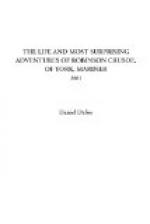We were now about 1000 leagues farther from home, than when at Bengal. All the comfort we could expect was, that there being another fair to be kept in a month’s time, we might not only purchase all sorts of that country’s manufactures, but very possibly find some Chinese junks, or vessels from Tonquin, to be sold, which would carry us and our goods wheresoever we pleased. Upon these hopes, we resolved to continue; and, to divert ourselves, we took several little journies in the country. About ten days after we parted with the ship, we travelled to see the city of Nanquin. The city lies in latitude 30 degrees north of the line: it is regularly built, and the streets are exactly straight, and cross one another in direct lines, which sets it out to the greatest advantage. At our return, we found the priest was come from Macao, that was to accompany Father Simon to Pekin. That Father earnestly solicited me to accompany him, & I referred him to my partner. In short, we both agreed, and prepared accordingly; and we were so lucky as to have liberty to travel among the retinue of one of their Mandarines, who is a principal magistrate, and much reverenced by the people.
We were five and twenty days travelling thro’ this miserable country, infinitely populous, but as indifferently cultivated; and yet their pride is infinitely greater than their poverty, insomuch that they priests themselves derided them. As we passed by the house of one of their country gentlemen, two leagues off Nanquin, we had the honour, forsooth, to ride with the Chinese squire about two miles. Never was Don Quixote so exactly imitated! Never such a compound of pomp and poverty seen before!
His habit, made of calico, was dirty, greasy, and very proper for a Mersy Andrew or Scaramouch, with all its tawdry trappings, as hanging sleeves, tassels, &c. though torn and rent in almost every part; his vest underneath it was no less dirty, but more greatly; resembling the most exquisite sloven or greasy butcher; his horse (worse than Rosinante, or the famous steed of doughty Hudibras) was a poor starved decrepid thing, that would not sell for thirty shillings in England; and yet this piece of worshipful pomp was attended with ten or twelve slaves who guarded their master to his country seat. We stopped at a little village for refreshment; and when we came by the country seat of this great man, we found him sitting under a tree before his door, eating a mess of boiled rice, with a great piece of garlic in the middle, and a bag filled with green pepper by him, and another plant like ginger, together with a piece of lean mutton in it: this was his worship’s repast: but pray observe the state of the food! two women slaves brought him his food, which being laid before him, two others appeared to perform their respective offices; one fed him with a spoon, while the other scraped off what fell upon his beard and taffety vest, and gave it to a particular favourite to eat. And thus we left the wretch pleased with the conceit of our admiring his magnificence, which rather merited our scorn and detestation.




